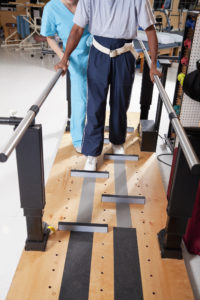Statin Use Tied to Reduced Mortality Rate in Older Adults

U.S. veterans aged 75 years or older who were prescribed statins had a 25 percent lower risk of death than their counterparts, according to a retrospective cohort study led by investigators from Brigham and Women’s Hospital and the VA Boston Healthcare System. The analysis also found the risk of dying from a cardiovascular event, such as a heart attack or stroke, was lower by 20 percent among veterans treated with statins.





 Many older patients with hematologic cancers have another condition to worry about—one they don’t always feel comfortable discussing with their health care team. As people are living longer, memory problems have become increasingly prevalent. However, little is known about the impact of cognitive impairment, and specific domains of cognitive impairment, on older cancer patients and their survival.
Many older patients with hematologic cancers have another condition to worry about—one they don’t always feel comfortable discussing with their health care team. As people are living longer, memory problems have become increasingly prevalent. However, little is known about the impact of cognitive impairment, and specific domains of cognitive impairment, on older cancer patients and their survival. As a primary care physician at Brigham and Women’s Hospital,
As a primary care physician at Brigham and Women’s Hospital,  When an older person suffers a trauma resulting in multiple broken bones and other injuries, often due to a fall or car accident, ensuring he or she gets appropriate care can be challenging. This is especially true when health care providers don’t have training or experience in geriatrics.
When an older person suffers a trauma resulting in multiple broken bones and other injuries, often due to a fall or car accident, ensuring he or she gets appropriate care can be challenging. This is especially true when health care providers don’t have training or experience in geriatrics. Falls that lead to bone fractures occur frequently in older people. These injuries, especially those that require surgery, often start patients down a path toward mounting health problems that threaten their ability to live independently or maintain a good quality of life.
Falls that lead to bone fractures occur frequently in older people. These injuries, especially those that require surgery, often start patients down a path toward mounting health problems that threaten their ability to live independently or maintain a good quality of life.